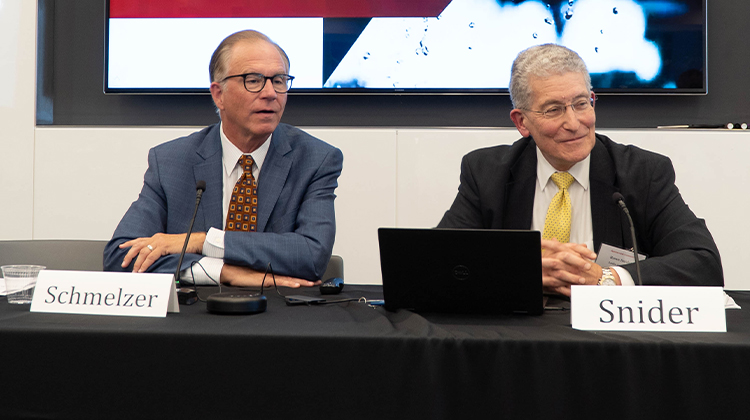Roger Schmelzer, President and CEO of the National Conference of Insurance Guaranty Funds (“NCIGF”), and Rowe Snider, partner at Locke Lord LLP, provided insight on how a runoff company might smooth a transition to insolvency, including ways in which the NCIGF could assist in the process. A replay of the presentation is available in the AIRROC On Demand library.
To provide context, Mr. Snider highlighted two recent insolvencies involving runoff companies: (1) the Bedivere (formerly OneBeacon) insolvency, in which the company was liquidated without any rehabilitation period; and (2) the Arrowood insolvency, involving the liabilities of Royal and Sun Alliance, which also was liquidated without any rehabilitation period. These liquidations took place in March 2021 and November 2023, respectively, and Mr. Rowe indicated that guaranty funds are not yet positioned to take over the claims.
The presenters opined that the key element to a successful insolvency, defined, as the prompt continuation of claims payments, is the orderly and prompt transfer of claims data. Challenges in runoff liquidations principally consist of issues that interfere with that transfer. These include situations where multiple books of legacy business are combined, where there are multiple, obsolete, or non-integrated business information systems, and where there are paper records that are difficult or costly to retrieve. The NCIGF recommends pre-liquidation planning to address these issues to the extent possible and can provide assistance with this planning. Mr. Schmelzer stressed that the amount of information that guaranty funds actually need in order to take over claims is fairly minimal, including the number of files, the content of the files, the status of the claim, and whether the claims can be converted to the guaranty fund standard protocol. Commercial information is not necessary.
Mr. Rowe and Mr. Schmelzer emphasized that confidentiality concerns should not impact a runoff company’s decision to work with state guaranty funds or the NCIGF prior to liquidation. Guaranty funds frequently enter into confidentiality agreements, and the Memorandum of Understanding promulgated by the NCIGF and adopted by the NAIC also provides for such confidentiality.
Mr. Schmelzer identified pre-liquidation planning, the reduction of readiness risk, and the ability to leverage runoff community knowledge as key to runoff insolvencies. He and Mr. Rowe also laid out the potential unforeseen consequences when runoff companies do not engage in pre-liquidation preparation, including increased scrutiny by all stakeholders in a liquidation, becoming a target of injured parties seeking to attribute blame, adverse press coverage of the runoff industry, reputational injury to the runoff industry, loss of credibility of runoff advocates potentially impacting the availability of restructuring statutes, and providing regulators with leverage to enact policies that disfavor runoff companies.
Mr. Schmelzer and Mr. Rowe also discussed the NCIGF’s position on restructuring statutes, which is the maintenance of guaranty fund coverage neutrality. In other words, any policy that has guaranty fund coverage prior to a restructuring transaction should continue to enjoy coverage after that transaction and, conversely, any policy that does not have guaranty fund coverage prior to a restructuring transaction does not gain coverage as a result of the transaction. A number of guaranty fund statutes need to be amended to provide for the neutrality. It is NCIGF’s belief that codification of guaranty fund neutrality will assist runoff companies in availing themselves of the restructuring statutes by confirming for the regulator that approval of the transaction will not impact guaranty fund coverage.
